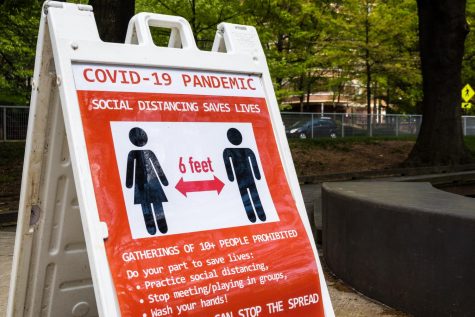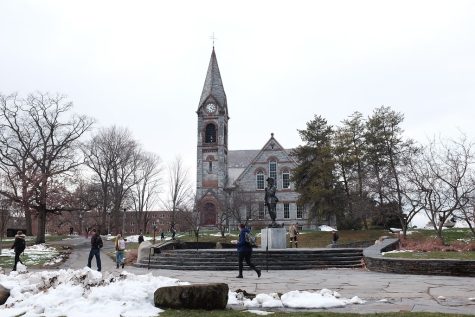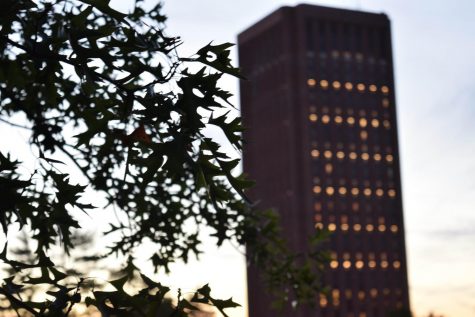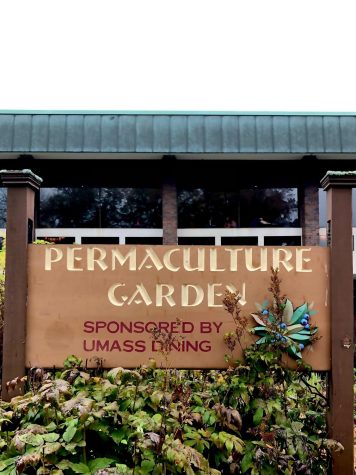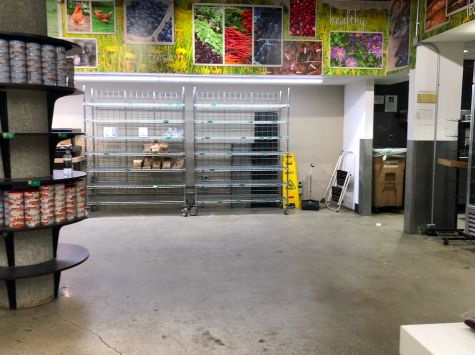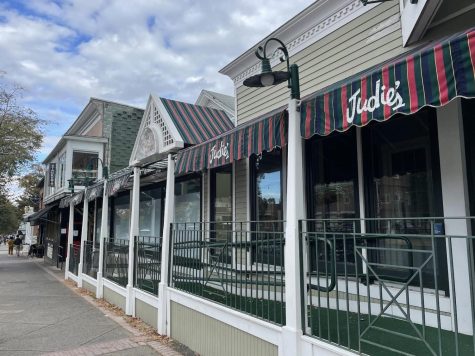The power of food
It defies boundaries defined by culture and a pandemic
Sunday morning. 7 a.m. My hometown, Swansea, Massachusetts.
My dad and I pulled off of Route 6, a bustling two-lane highway with stoplights every quarter mile, that stretched all the way from Somerset to East Providence, into the tiny lot of the Cornerstone Bakery. It didn’t look like much on the outside, all grey and rundown, but heaven awaited on the inside.
We both nearly jumped out of my dad’s giant red Ford pickup truck and rushed to the entrance, past the plenty of other cars that already started to fill the parking lot, even so early in the morning. I pulled open the metal-framed door and a small bell rang above my head. My dad followed behind me. We were immediately greeted by the smell of sweet, fresh dough and the warm smile of a small elderly woman.
My eyes darted to the glass counter, which held all the Portuguese treats one could ever ask for. But we weren’t here for the stuff behind the counter; we were here for the Sunday morning treat – malasadas. This sweet, fried dough is about the size of a dinner plate and is covered in cane sugar. Every time you pick it up, oil and sugar coat your fingertips, so it’s wise to have plenty of napkins on hand. These treats are a delicacy to the Portuguese and sell out quickly upon opening at 6 a.m. here at Cornerstone. We all know the time and place to get our once-a-week treats. However, my dad and I opt for it to be a once-a-month treat to save our poor arteries.
The woman knew why we were here before we had to ask. She handed my dad a large brown paper bag filled with six malasadas, oil creating odd shapes on the bottom and sugar falling through the crevices. $5. A small price to pay for heaven.
We also bought a loaf of massa, also called sweetbread, another delicacy to the Portuguese. After all, there is no better sweetbread in the area like Cornerstone sweetbread. Everyone in my family knows this and has for generations. You can try another brand, but nobody competes with Cornerstone.
Massa is a bit different than a traditional loaf of bread. It’s round and dark brown at the top, fading into a light brown on the sides and bottom. It’s hard to pull the top apart, but the bottom melts in the mouth. The inside is white, soft, airy and slightly chewy. Some loaves come pre-sliced, but we like to buy the unsliced loaves, opting to decide our own portions. It can be served with a thick slice of butter and melted in the oven or eaten as is, which I personally think is enough.
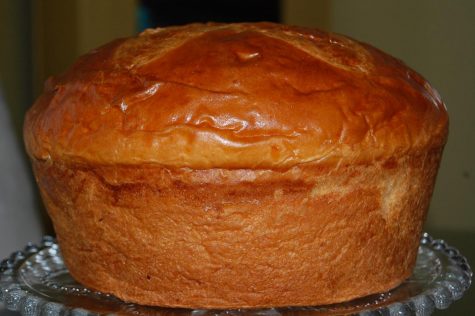
While my dad paid the woman in cash for our breakfast, I couldn’t help but stare at the wall, like I always did when I came here. The walls were cluttered with pictures of Jesus Christ, Mother Mary and crosses of all shapes and sizes, some with Christ nailed to them and some without. To an outsider, this would seem rather cult-y and make you believe that this restaurant is crazily religious. But it was nothing out of the ordinary for a community raised in the church.
My dad started going to Cornerstone each Sunday much before I was born, as it was a go-to place for the entire Gracie family for a cheap, yet delicious breakfast and some Portuguese treats to take home. I joined in when I realized how mouth-watering those malasadas are. We haven’t been in a while. My dad travels for work and I moved two hours away to be at school, so the times that we’re both home doesn’t overlap as much as we’d like.
Before, it was our timing that prevented us from going to the bakery. Now, it’s the coronavirus.
COVID-19, or coronavirus, has forced almost all governors to shut down their states in order to prevent the virus from spreading like wildfire and save lives. All non-essential businesses are closed, which means all the beloved local restaurants and bakeries are relying on subsidies from the state merely to stay alive. They are able to apply for a loan through the Paycheck Protection Program, where the government is providing $350 billion to small businesses. Many have had to lay off workers because they simply cannot afford to pay them, nor do they have work for them. Even restaurants who don’t typically offer takeout and delivery services are doing so. It’s the only way to keep their doors open.
While Cornerstone is open for takeout, my dad and I haven’t gone. Social distancing has prevented us from going anywhere except the grocery store, and even that is only when the refrigerator is near empty. We both don’t want to risk going to non-essential places in order to protect ourselves and our family.
Almost all families are taking similar precautionary measures during this pandemic. But by being safe, we are also losing the food traditions and restaurants that help bring us closer to our loved ones. Whether it be holidays we look forward to all year or the Sunday morning breakfast at that cozy cafe, we’ve lost things that once seemed unimaginable to lose.
Everywhere you turn in Fall River is another Portuguese restaurant, grocery store or bakery, as 43 percent of its 89,000 residents claim Portuguese ancestry, according to The Herald News, Fall River’s local newspaper.
But why here? Whaling. New Bedford, the next city over in Southcoast Massachusetts, with 38 percent of its 95,000 residents claiming Portuguese ancestry, used to be the whaling capital of the world. As the city grew more towards industry, whaling ships would leave with only a few fishermen and go to the Azores, the islands off the coast of Portugal, to pick up 15-20 more men. While whaling continued to die, the Portuguese stayed, largely because the American economy and job market was much better than in Portugal and the islands. Another boom of Portuguese immigration occurred in the 1950s until the 1990s when immigration laws were relaxed in the US.
“All immigrants cluster in certain areas initially to be near people of their own language and churches,” said James Fonseca, a New Bedford native and the author of “Making History – Creating a Landscape: The Portuguese American Community of Southeastern New England.”
All of these businesses are local, small ones run by families. This makes them more favorable to their customers, but more impacted by coronavirus.
Estoril Restaurant is one of the many that have been affected by COVID. After speaking to a staff member, she exclaimed that things have become more hectic since the pandemic began.
While people would think that the restaurant business would have slowed down because most are only doing delivery and/or curbside service, the new regulations and mental health factors put in place have been taking a toll on the restaurant industry and will for a while.
To keep up with the regulations between the state and federal government and restaurant industry, Estoril has cleaned more regularly, closed the bathrooms, put up signs informing customers to stand six feet apart and to wear a mask, limited the entrances, have been wary of everything that contacts gloves and resorted to takeout boxes. These tasks have proven to be increasingly difficult with the high demand for cleaning and takeout products. The restaurant has been spending more money doing the cleaning and takeout tasks that it has always done because of the shortage of these products.
“Gloves are a hot ticket to even find,” she said.
Along with the shortage of cleaning products, COVID has led to a meat shortage. When there is a shortage, restaurants have to pay more money for the available meat, which means customers have to pay above-average prices for their food.
There is also the mental health aspect that comes with leaving the safety of one’s home to go anywhere now. While many staff members have had to be laid off due to a lack of funds and work for them to do, the ones that are allowed back may not want to come back because they fear their safety could be compromised when serving customers. Many of them also have been collecting unemployment, which pays more a week than many jobs, so they’re already receiving a higher salary for staying home. For any staff that do come in, managers have to ask them questions, like “Do you feel sick? Did you have a fever in the last 24 hours?” to ensure that no one is ill, which would lead to another closure.
Customers are also afraid to go into the restaurant. They prefer to do curbside, but Estoril does not always have the staff to provide that service. It will also be a hurdle for customers to come back once the dine-in restrictions are lifted. There will only be four people allowed to a table, which will all be more spread out and restaurants will have paper menus, which come at an additional cost. Usually, people go out to eat to socialize and celebrate with parties larger than four. Typical families are members of four, so she worries that they will just order takeout and continue to stay safe in their homes.
They also have been spending more time promoting their restaurant, posting advertisements and changes on every social media platform they can find.
“We’re doing much more work for less profit,” she said.
While the world is going through difficult times at the moment, we will once again be able to eat at our favorite restaurants and host get-togethers with our loved ones. Food, no matter where it comes from or how it’s made, unites people. It teaches each other about different cultures or further about our own. Those who cook take pride in their abilities. Recipes are built or passed down through generations and certain celebrations cannot be made whole without one specific dish on the table.
—
For UMass junior psychology major Zach Fauvel, his family makes an Italian dish called Pizzagana for Easter. Fauvel described it as “on the idea of a quiche, but mixed inside is ricotta cheese and Italian cold cuts like prosciutto and salami.”
His uncle makes a giant pan of Pizzagana for the whole family, who got the recipe from his nana, who got the recipe from her mother, who created it. The dish has been passed down for generations and has become a staple for Fauvel’s family each Easter Sunday. Their family prepares so much food that the Pizzagana is usually hidden amongst the plethora of other treats, including deviled eggs, french toast and ham.
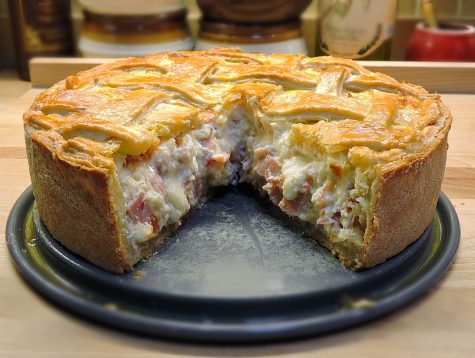
“I’m not really a religious person, but just due to having a house full of family, Easter is one of the few days I look forward to each year,” he said.
Fauvel is unsure as to why it is only made for Easter, but that only makes this special treat all the more meaningful. Unfortunately, their family had to cancel this previous Easter due to coronavirus.
“This Easter was not the same. We had a standard Easter dinner with me and my parents and just did a Zoom call with my dad’s side because of COVID,” said Fauvel.
For UMass senior economics major Saul Bezner, poppy seed challah is served every Friday night for dinner when he is with his grandparents. Challah is a type of bread made in the Jewish faith that is braided and eaten on celebratory occasions, like Shabbat. For those who follow Judaism, Friday is Shabbat, or the day of rest and the seventh day of the week. Bezner and his family break challah bread to honor a week of hard work.
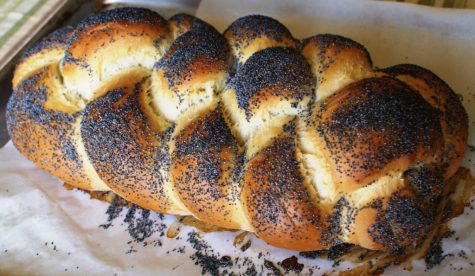
They also eat poppy seed challah on Rosh Hashanah, the Jewish New Year, celebrated for three days, which are different every year, but fall sometime in late September. Although at this time of the year, they pair it with honey to celebrate a sweet new year.
While popular in challah, poppy seeds are also eaten in a variety of Jewish foods. During the holiday of Purim, they’re a popular ingredient in cookies called Hamantaschen, which are triangular, fruit-filled pocket cookies. The treats are named after the villain in the story of Purim, Haman, an Achaemenid Persian Empire official who was planning to kill all the Jews, according to the Jewish Book of Esther. In the story of Purim, Queen Esther became a vegetarian and chose to eat legumes, nuts and poppy seeds. Esther and her cousin ultimately ended up saving the Jews, so the poppy seeds are incorporated in her honor.
Growing up in Pittsburgh, Pennsylvania, Bezner helped make challah with his grandma, who lives in a suburb outside the city, but hasn’t done so in a while since she prefers to make the bread herself. Their family hasn’t been able to unite since January because he’s been away at college. Now with the social distancing protocols put in place, Bezner won’t be able to see his grandparents for a while longer but knows it’s worth it for future nights filled with good memories and delicious poppy seed challah.
In the meantime, him and his mom eat a chicken dinner and drink some wine together each Friday night. Sometimes they light candles. The two of them are not religious but do so as part of their culture. But with his grandparents, they would always light candles and eat challah. Bezner and his mom don’t make challah for just the two of them, as it is quite a lot of work.
For UMass sophomore economics and geography double major Helen Sajo, Christmas is a particularly tasty time in her Hungarian culture. Christmas dinners are filled with stuffed cabbage, usually packed with pork and rice. They also eat their own version of gingerbread, called mézeskalács, that are sweeter than normal gingerbread, considering it’s more honey-based. Hungarians put the icing on the top and wait for it to harden before eating, or even eat the gingerbread without it.

Another fun treat they have to celebrate the holiday are little candied chocolates with almond paste, jelly, marzipan or coconut in the middle, called szaloncukor. They are then covered in shiny colorful foil and hung on Christmas trees for decoration. The candies are only bought in pastry shops and can only be found during Christmas time.

“Sometimes my grandparents will mail us a box for our tree here in the states,” said Sajo.
The candies are a little taste of home, especially for her parents, who were born in Hungary and moved to the US before Sajo was born. She was born and raised in Louisiana, but she and her family go back to Hungary every summer and over many winter breaks.
Once Christmas time is over, Hungarians serve lentil soup for New Years’. The soup is supposed to bring luck into the new year, specifically in finances.
For UMass senior psychology major Paige Anderson, her mom’s French Canadian family always makes meat stuffing for Thanksgiving, a holiday her family picked up after they moved to the US. It’s made with pork and hamburg in a skillet with onions. Her great-great-grandmother created the recipe for her family to enjoy for generations of Thanksgivings to come. Now, it has become a staple for her and her family.
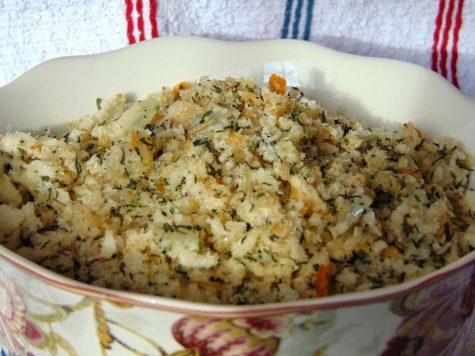
“We can’t have Thanksgiving without it,” said Anderson.
For sophomore education and Chinese double major Nancy Zheng, foods are eaten to bring forth positivity for her and her family in their Chinese culture, as well as to celebrate events.
For birthdays, the Chinese eat long noodles with a boiled egg, called the longevity noodle, to represent longevity in the next year of their lives.
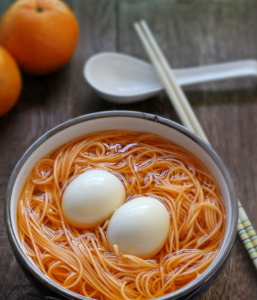
For the mid-autumn moon festival, which is a harvest festival about lunar appreciation and watching the moon, celebrated on the 15th day during the 8th month of the lunar calendar under a full moon, also called the “Night of the Moon,” they eat moon cake. They are small, round pastries of a thin crust with Chinese characters for “harmony” or “longevity imprinted on the outside, encasing a thick filling, usually of red bean or lotus seed paste and an egg yolk or salted duck eggs in the middle. The eggs or egg yolk represent the moon.
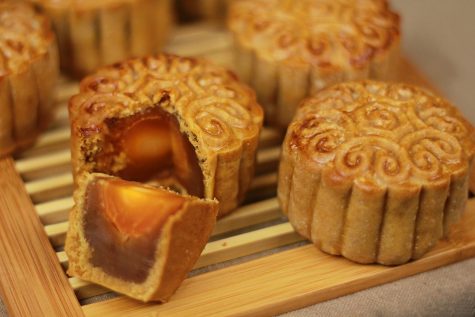
For Chinese New Year, which marks the new year on the lunar calendar, begins on the second new moon after the winter solstice and ends on the full moon fifteen days later. The Chinese celebrate with plenty of tasty treats including, tangyuan, which are sweet rice balls deep-fried or served in broth, filled or unfilled, that symbolize family togetherness. Then there is nian gao, a cake made of glutinous rice flour, which is made to symbolize a higher income or position in the new year. They also make a big, full fish of any kind, which is prepared differently depending on the year and the family. The saying of “nian nian you yu” translates to, “Every year there is a surplus.” Surplus and fish are homophones in Chinese, which is why fish is always made to represent it. They also make dumplings, which symbolize wealth. The type of dumpling varies depending on where a family lives in China.
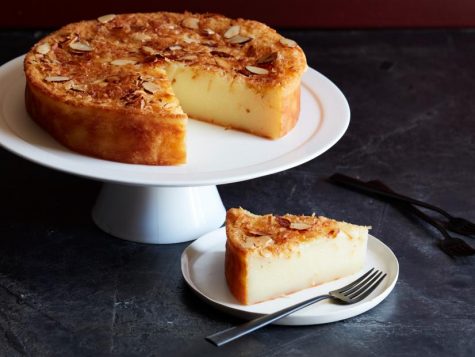
“Usually families make their own dumpling from scratch and the whole family gets involved. My family is lazy LOL, so unless my grandparents are in the US, we usually store buy it,” said Zheng.
—
Sunday. 9 p.m. Swansea. Week… who knows of the coronavirus pandemic.
My mom, dad and I laid up on the couches watching 90 Day Fiance, a reality tv show on TLC where the oddest of couples need to get married within 90 days or one of the people will have to go back to their home country without their other half. It’s become the best part of our week.
Tonight’s dinner was grilled chicken and oven-roasted potatoes, a typical, but delightful meal in our house. The kitchen was immediately cleaned up to make it look like there was never a dinner. The more we’ve been in the house, the more we’ve been inclined to keep it spick and span.
We each have a bowl of ice cream, which we have rarely, but have been stocking our freezer with an assortment lately. Big Ed does something horrifically stupid to poor Rose. We laugh.
Today is the last day of the weekend where we can relax a bit before returning to our returning to face our responsibilities tomorrow: my mom back to work as an MRI technician at Roger Williams Hospital, my dad back to the garage to continue on the five projects he’s been working on to keep his mind busy and I’m back to online school, which has somehow proven to be more stressful than actual school.
Coronavirus has taken a toll on all of us. None of us want to cook, or clean or do our work, but we continue to pursue some sense of normalcy. We even still did Easter, just very differently. My mom and I made macaroni and cheese and a roasted ham for dinner and chocolate creme pie and carrot cake for dessert. We decorated boiled eggs and had an egg hunt, grasping at the tradition we have every year. My grandmother called in to remind us that we will unite again and have a delayed Easter feast. I can’t wait for that day to come.
For now, though, we have ridiculous reality tv shows and each other to keep us company and somewhat sane until the restaurants reopen and we can celebrate the rest of the year’s holidays. And truth be told, that’s all I need.

“To not dance when you had the health and could hear the music could be your biggest regret.”
Email Abbie at [email protected] or follow her on...


